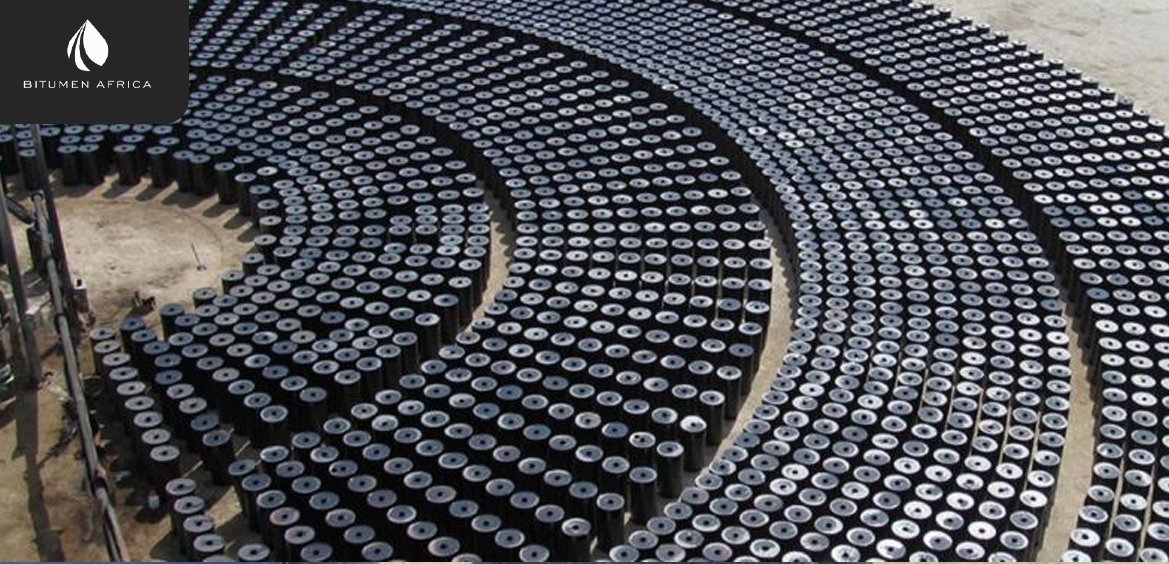Bitumen Penetration Grade 160/220 is a widely used type of bitumen in the construction industry, particularly for road construction and the production of asphalt pavements. This grade of bitumen is characterized by its specific penetration range and other properties that make it suitable for various applications.
General Overview
Bitumen 160/220 is a soft grade of bitumen with a penetration range between 160 to 220 desi-millimeters at 25°C. It is produced from the vacuum residue of crude oil after the cracking process and the removal of hydrocarbons. The bitumen is further processed by passing hot air through it, which enhances its properties and makes it suitable for use in road construction and other applications.
Technical Specifications
- Penetration: 160-220 desi-millimeters at 25°C
- Softening Point: 35-43°C
- Specific Gravity: 1.01-1.06 at 25°C
- Ductility: Minimum 100 cm at 25°C
- Loss on Heating: Maximum 0.2%
- Drop in Penetration after Heating: Maximum 20%
- Flash Point: Minimum 250°C
- Solubility in CS2: Minimum 99.5%
- Spot Test: Negative
Properties and Applications
Bitumen 160/220 exhibits thermoplastic properties, meaning it softens when heated and hardens upon cooling. This characteristic makes it highly suitable for use in hot mix asphalt for bases and wearing courses. Its strong viscosity and flexibility ensure durability and resistance to various weather conditions, making it ideal for road construction and repair.
Key Properties:
- Thermoplastic Nature: The bitumen softens at high temperatures and hardens when cooled, which is essential for its application in hot mix asphalt.
- High Viscosity: This grade of bitumen has a strong viscosity, providing excellent binding properties for aggregates in asphalt mixtures.
- Durability: The bitumen's properties ensure long-lasting performance, even under heavy traffic and varying weather conditions.
- Flexibility: It can withstand minor movements and deformations in the pavement without cracking.
Applications:
- Road Construction: Used in the production of hot mix asphalt for base and wearing courses.
- Asphalt Pavements: Provides a durable and flexible surface for roads, highways, and other paved areas.
- Repair and Maintenance: Suitable for patching and repairing existing asphalt surfaces.
Quality Assurance
Manufacturers of bitumen 160/220, such as ATDM and RAHA Bitumen Co., guarantee the quality of their product through rigorous testing and quality control measures. International inspectors often oversee the loading and production processes to ensure compliance with ASTM/EN 12591 standards, providing customers with confidence in the product's reliability and performance.
Production Process
The production of bitumen 160/220 involves several steps:
- Crude Oil Distillation: The initial step involves the distillation of crude oil to separate lighter fractions from the heavier residues.
- Vacuum Distillation: The heavier residues undergo vacuum distillation to produce vacuum residue, which is the primary feedstock for bitumen production.
- Air Blowing: The vacuum residue is further processed by passing hot air through it. This process, known as air blowing, enhances the bitumen's properties, such as its penetration and softening point.
- Quality Control: The final product undergoes rigorous testing to ensure it meets the required specifications and standards.
Environmental Considerations
The production and use of bitumen 160/220 have environmental implications. Manufacturers are increasingly adopting sustainable practices to minimize the environmental impact of bitumen production. These practices include:
- Recycling: Using recycled materials in the production of asphalt mixtures.
- Emission Control: Implementing measures to reduce emissions during the production process.
- Energy Efficiency: Enhancing energy efficiency in production facilities to reduce the carbon footprint.
Conclusion
Bitumen Penetration Grade 160/220 is a versatile and essential material in the construction industry, particularly for road building and asphalt pavement production. Its unique properties and stringent quality standards make it a preferred choice for ensuring long-lasting and high-quality infrastructure.

